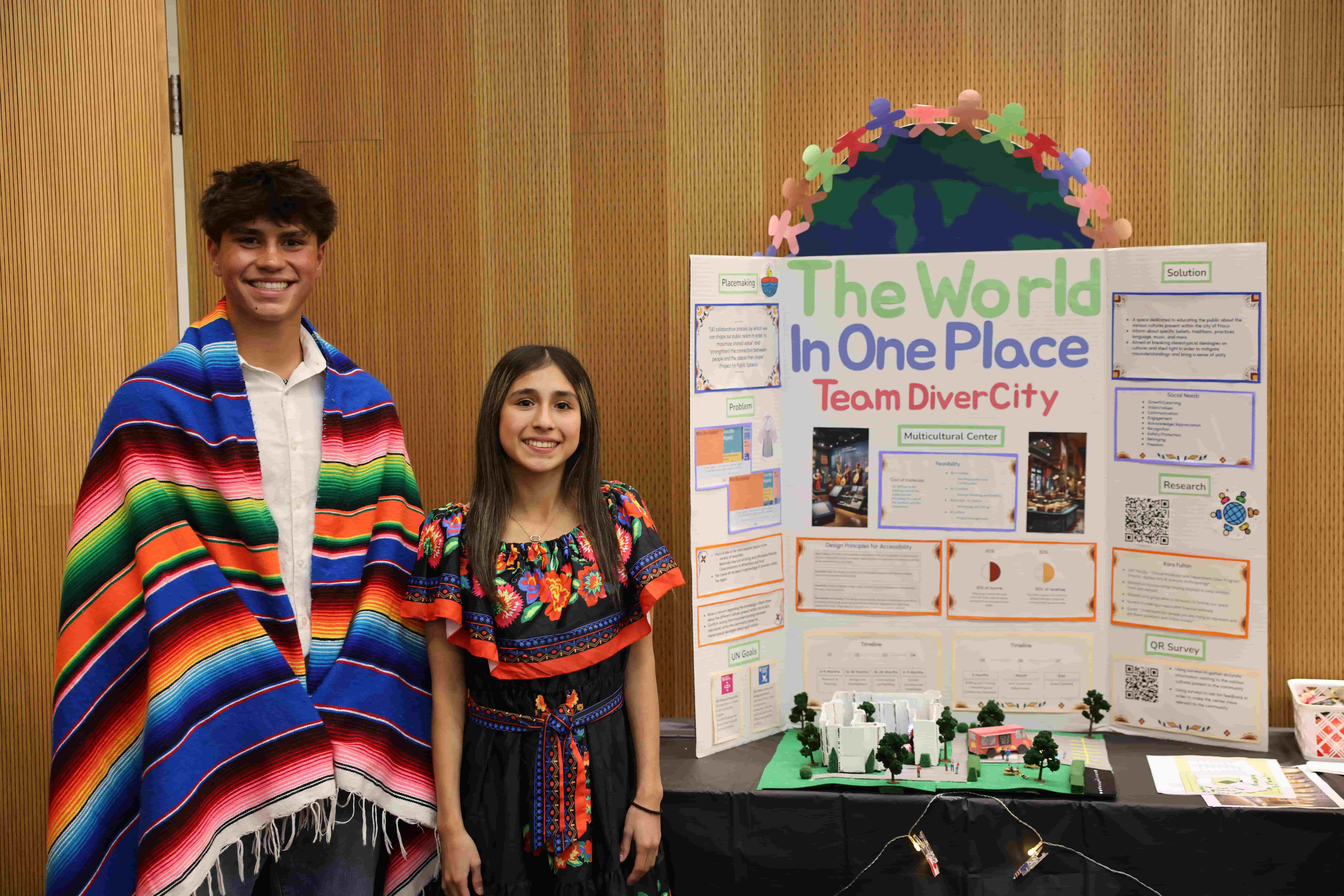Applied Heritage Management
Overview
Applied Heritage Management (AHM) is a multidisciplinary field focused on identifying, preserving, and promoting cultural heritage, encompassing both tangible and intangible assets inherited from past societies. AHM integrates various disciplines, including archaeology, art history, cultural anthropology, economics, environmental studies, history, marketing, museum studies, music, political science, and tourism studies, among others. Specialists often collaborate with stakeholders such as community members, government organizations, and other cultural institutions.
Minors and certificates cannot be added to your official degree plan until Fall 2025.
Key Highlights of the Program
AMDS 3210 – Public Engagement in Heritage Management
This course helps heritage managers leverage various genres of both written and oral communication in public engagement. Students will understand and practice various ways in which heritage managers engage with the public, a key skill in sustainable heritage management. Students will both read and write different types of documents relating to heritage communication, examine different modes of communication, examine case studies, and develop their own individual and team projects that include written, oral, and multi-modal communication.
Prerequisite: ENGL 1310 and 1320 with a C or better.
AMDS 3220 – Heritage Museum Studies
This course examines issues related to the conservation, management, interpretation, and use of the past in the present. Focused on the practice of collecting and managing tangible heritage, topics are centered on the histories, purposes, and responsibilities of heritage museums as sites for the construction, preservation, and dissemination of memory, identity, and culture. Content analyzes heritage museums as sources for social responsibility and as tools for understanding cultural, social, and political influences in society.
AMDS 3230 – Heritage Travel
This course explores themes of heritage and cultural travel by examining questions of what motivates people to travel, how cultural identity is developed and perceived, and the economic development and implications of heritage travel. The course explores heritage travel through an interdisciplinary lens, emphasizing methodologies in fields such as history, art and architectural history, music and performance, material culture, literature, economics, and placemaking. Students will examine theories of travel as well as a variety of case studies from around the world.
AMDS 3240 – Heritage Laws and Ethics
This course offers an in-depth examination of heritage management, focusing on the legal frameworks, ethical considerations, and international perspectives that shape the preservation and conservation of cultural and natural heritage sites. Students will explore the complexities of heritage laws and regulations, ethical dilemmas in heritage management, and the role of international organizations such as UNESCO in safeguarding heritage sites worldwide. Through case studies, discussions, and practical exercises, students will develop a comprehensive understanding of heritage management principles and practices.
MINOR (18 credit hours)
ARCH 2800 – Archaeological Science
Human prehistory and methods of scientific investigation; emphasizes archaeological cultures from early hominid sites in East Africa to entry of peoples into the New World. Course stresses methods of interdisciplinary research, including geology, paleoenvironmental reconstruction, paleodiet and artifact-faunal analysis. Labs employ artifacts and bones for study.
GEOG 3500 – Introduction to Geographic Information Systems
Introduces the concepts and applications of computer-based spatial data handling, known as geographic information systems (GIS) technology. Illustrates the essential methods of GIS and its applications in fields including geography, business, administration, planning and environmental science. Students gain application skills via a series of practical exercises illustrating problem-solving strategies using up-to-date GIS software packages.
AMDS 3210 – Public Engagement in Heritage Management
This course helps heritage managers leverage various genres of both written and oral communication in public engagement. Students will understand and practice various ways in which heritage managers engage with the public, a key skill in sustainable heritage management. Students will both read and write different types of documents relating to heritage communication, examine different modes of communication, examine case studies, and develop their own individual and team projects that include written, oral, and multi-modal communication.
Prerequisite: ENGL 1310 and 1320 with a C or better.
AMDS 3220 – Heritage Museum Studies
This course examines issues related to the conservation, management, interpretation, and use of the past in the present. Focused on the practice of collecting and managing tangible heritage, topics are centered on the histories, purposes, and responsibilities of heritage museums as sites for the construction, preservation, and dissemination of memory, identity, and culture. Content analyzes heritage museums as sources for social responsibility and as tools for understanding cultural, social, and political influences in society.
AMDS 3230 – Heritage Travel
This course explores themes of heritage and cultural travel by examining questions of what motivates people to travel, how cultural identity is developed and perceived, and the economic development and implications of heritage travel. The course explores heritage travel through an interdisciplinary lens, emphasizing methodologies in fields such as history, art and architectural history, music and performance, material culture, literature, economics, and placemaking. Students will examine theories of travel as well as a variety of case studies from around the world.
AMDS 3240 – Heritage Laws and Ethics
This course offers an in-depth examination of heritage management, focusing on the legal frameworks, ethical considerations, and international perspectives that shape the preservation and conservation of cultural and natural heritage sites. Students will explore the complexities of heritage laws and regulations, ethical dilemmas in heritage management, and the role of international organizations such as UNESCO in safeguarding heritage sites worldwide. Through case studies, discussions, and practical exercises, students will develop a comprehensive understanding of heritage management principles and practices.

Considering Applied Heritage Management?
Texas is a state rich in cultural heritage, offering countless opportunities to preserve and promote its diverse history. This area of study equips students with the skills to identify, protect, and celebrate both tangible and intangible cultural assets, collaborating with communities and organizations.
With growing career opportunities in fields such as cultural resource management, museum collections, and heritage tourism, graduates will be ready for roles in museums, parks, and heritage centers. This area of study is an ideal complement to a wide range of UNT majors.
Immediate Benefits for students
- Communication
- Cultural awareness
- Collaboration
- Analytical thinking
- Critical thinking
- Legal knowledge
Benefits After Graduation
Graduates will have the opportunity to work in a variety of fields:
- Heritage Manager
- Museum Curator
- Conservator
- Cultural Resource Manager
- Archivist
- Exhibit Designer
- Heritage Tour Specialist
- Preservationist
- Cultural Consultant
- Site Interpreter



